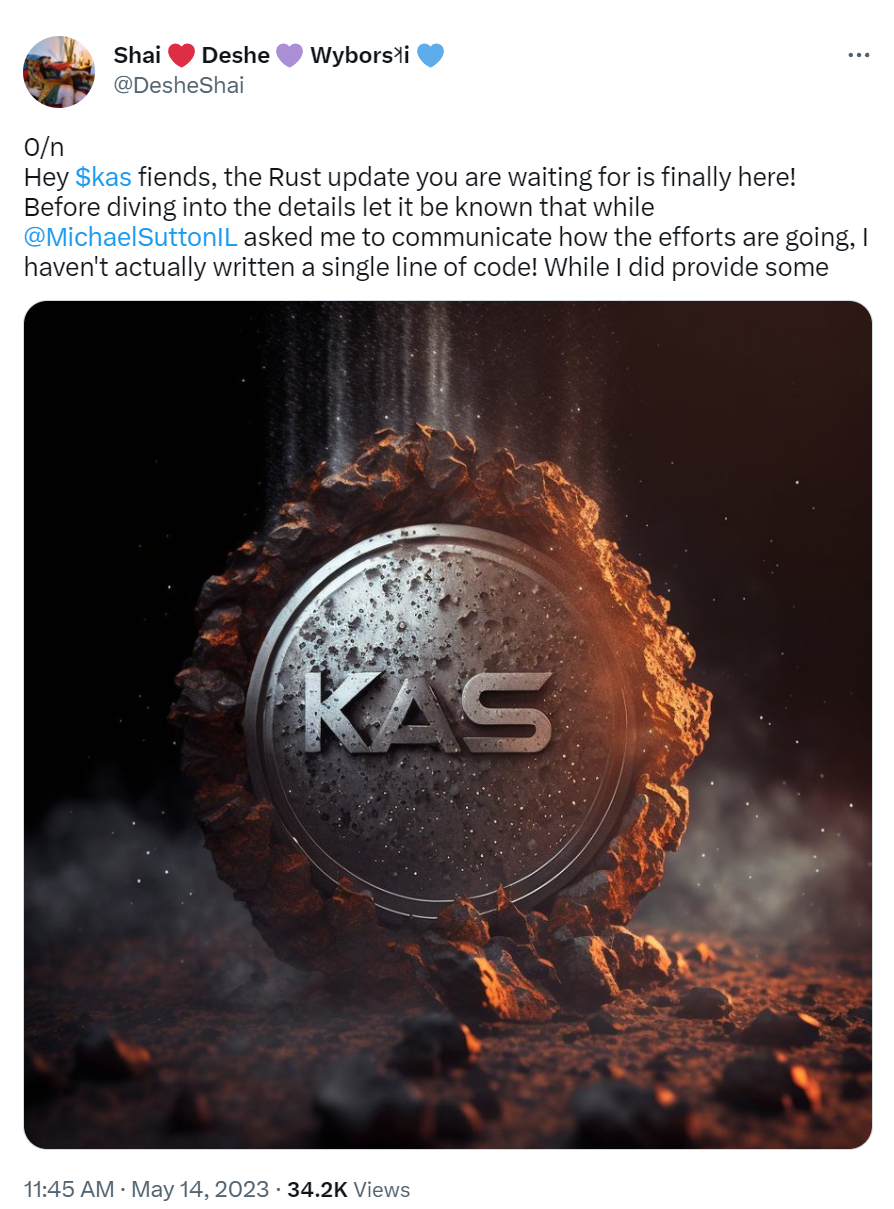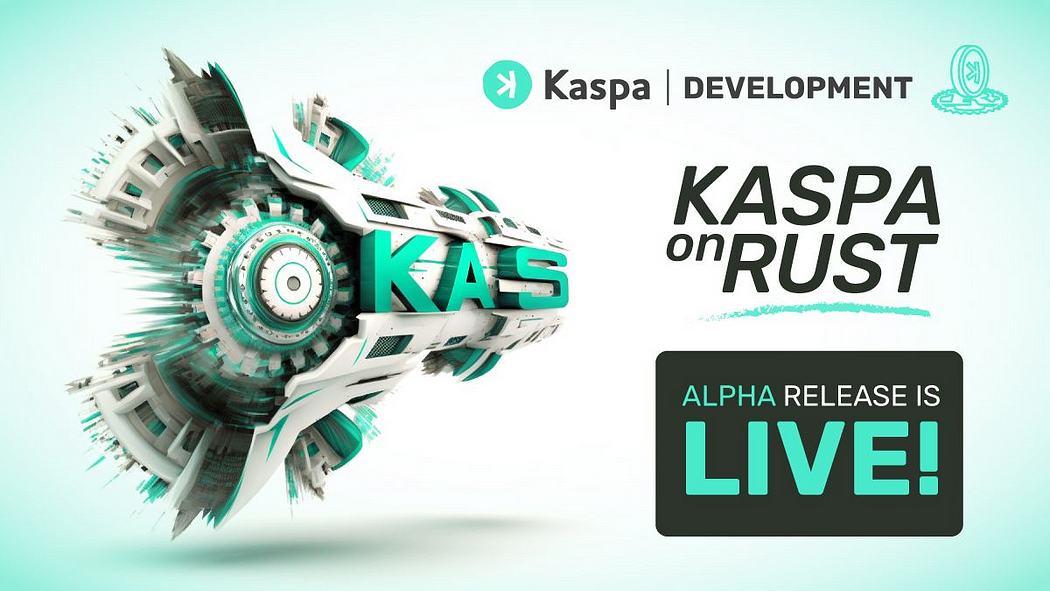Two to three week estimated timeline for the beta release.
Kaspa on Rust
The Rust rewrite, also known as Rusty Kaspa, is like a major engine upgrade for the Kaspa platform. As a result, the everyday user can expect a faster, more stable, and more secure experience. Think of it like swapping out an old engine in a car for a newer, more efficient one. The car runs smoother and faster, is more reliable, and uses less fuel. Similarly, Rusty Kaspa should make transactions quicker and more reliable, reduce the possibility of system crashes, and make the whole platform more secure from cyber threats. A recent update from Shai ‘Deshe’ Wyborski @DesheShai on Twitter provides a window into the ongoing progress of Rusty Kaspa’s development.

As it stands, Rusty Kaspa is in its alpha stage. This preliminary version has already been deployed to both the mainnet and testnet, providing a glimpse into the future of Kaspa. Initial responses suggest that Rusty Kaspa is performing optimally, with no significant issues.
However, the journey to the Beta release still has several tasks and tests ahead. One objective is to ready the infrastructure to handle increased block rates. Achieving this involves many elements, including the automatic pruning of block headers, block sampling for difficulty adjustment, the ability to recover from interrupted Initial Block Downloads (IBD), and the enhancement of the Application Programming Interface (API).
One key challenge lies in the automatic pruning of block headers. The current situation requires a manual node resync to clear older header data. With the transition to Rust, this process will be streamlined, improving efficiency.
Block sampling is expected to refine the difficulty adjustment process. As explained in a recent Kaspa Improvement Proposal (KIP), the goal is to optimize the Difficulty Adjustment Algorithm (DAA) to adapt to environments with higher blocks-per-second (BPS).
The IBD recovery is another scheduled modification. If the initial sync process is interrupted, it must be restarted. Rusty-Kaspa’s ability to resume an interrupted IBD should significantly reduce sync times and relieve network strain.
Moreover, Rusty Kaspa will introduce a more robust and user-friendly API on the horizon. The new API will offer expanded support for JSON requests and feature a revamped structure that caters to purpose-specific APIs, making it a boon for stakeholders like exchanges, developers, and utilities.
Rusty Kaspa can also function without a hard fork, following the same consensus rules as the current Golang implementation. However, any modifications to increase block rates would require consensus rule changes, leading to a hard fork.
The estimated timeline for the beta release is two to three weeks, after which a 4BPS testnet will be launched for a few days. While it’s early to provide a precise roadmap for a 32BPS mainnet, the developers are optimistic that data from the 4BPS testnet will give valuable insights for future planning.
Rusty Kaspa is taking great strides toward strengthening the Kaspa ecosystem. Despite the challenges, the progress made thus far paints a remarkable picture. The shift to Rust isn’t merely a technical rewrite; it’s a strategic move to enhance Kaspa’s functionality, efficiency, and user experience. As such, the anticipation for the beta launch of Rusty is highly anticipated as the greater crypto ecosystem witnesses Kaspa’s evolution.
Twitter Update: https://twitter.com/DesheShai/status/1657774182136987648

Tip: The Kaspa platform’s makeover into Rust, also known as Rusty Kaspa, was largely fueled by in-depth discussions and ideas from its community. But the real heroes behind this innovation were @MichaelSuttonIL, who led the initiative, @OriNewman, @Elichai2, @Tiram_88, and other Kaspa community developers.
Find me on the Kaspa discord — Bubblegum Lightning
